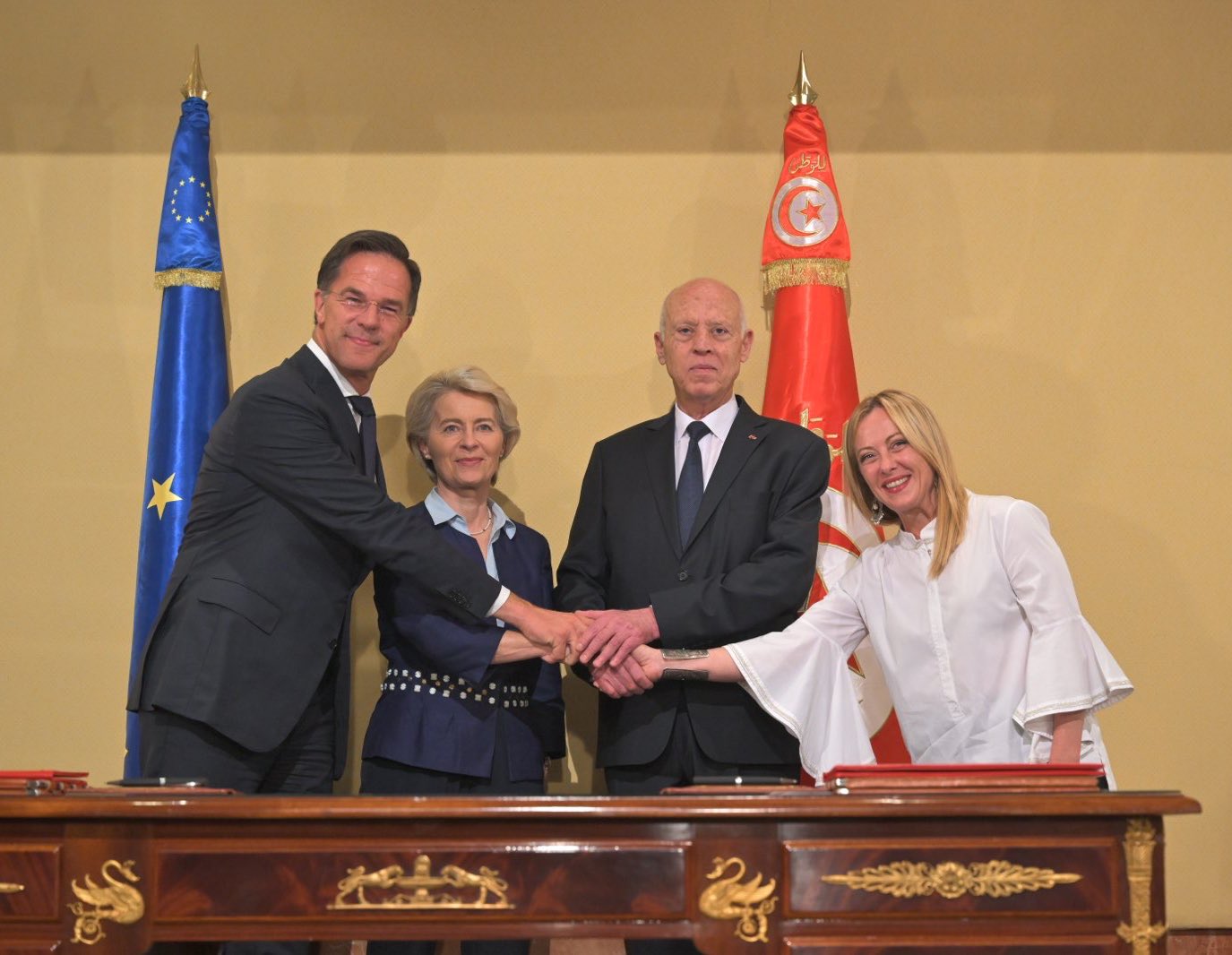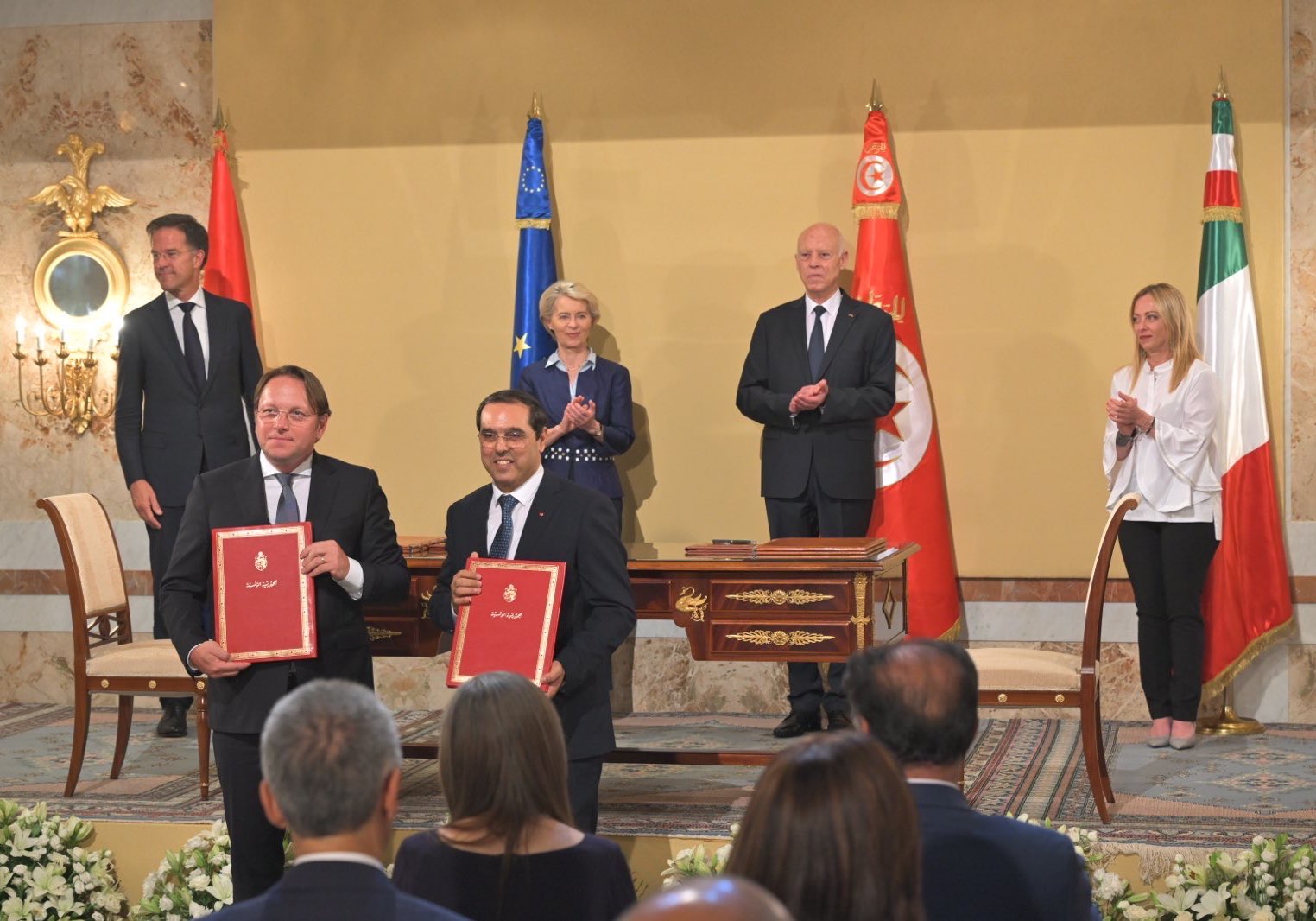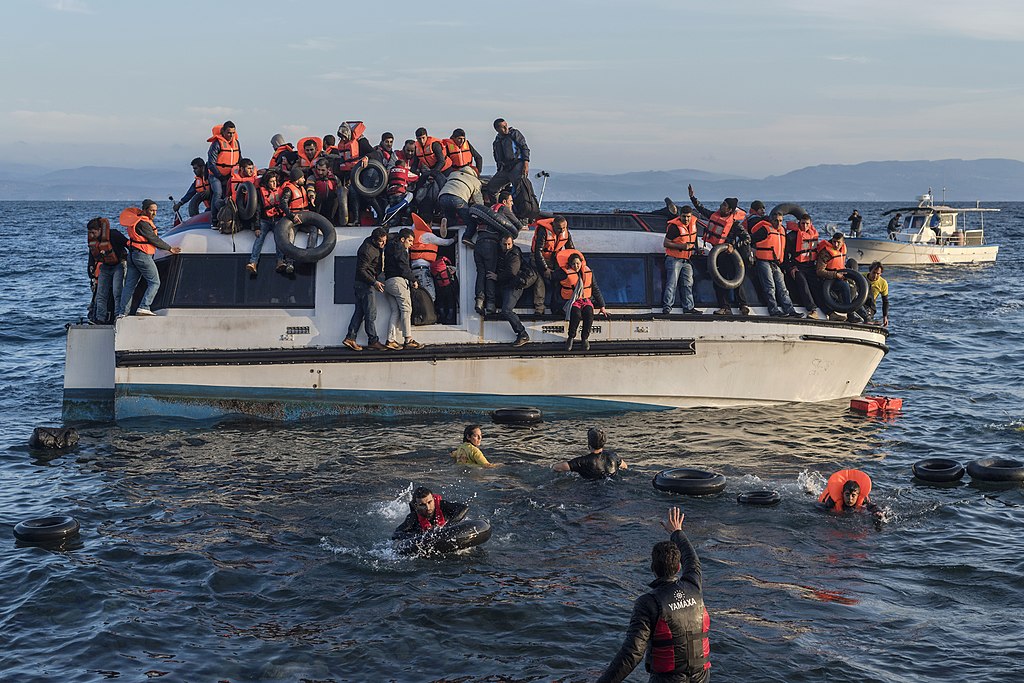The Mediterranean might be a paradise for holidaymakers, but it is simultaneously a graveyard, where at least 27,000 migrants have died in attempted border crossings since records began in 2014. A new EU deal is being touted as the best chance for a more ‘structured’ approach to this ‘problem’: distributing migrants more evenly across the continent. In reality, it will do nothing to alleviate the nightmare, and merely balances the reactionary interests of European powers.
As the crisis of capitalism continues to bite, the ruling classes of Europe have increasingly blamed social and economic problems in their countries on a ‘deluge’ of migrants seeking refuge on the continent, themselves victims of imperialist military adventures and grinding poverty in the Middle East and Africa.
The migrant policies of ‘Fortress Europe’ have become ever-more brutal. Meanwhile, various governments compete with one another as to who can outdo the other in the field of racist demagogy, proving they are ‘tough on migration’.
The purpose of this new deal is to square the circle between external border countries, where refugees tend to make landfall, and who are demanding more resources for dealing with them; and those in the centre who are demanding stricter limits on migration. The staunch refusal of countries in the latter category, such as Poland, to accept refugees from the Middle East or Africa makes a stark contrast with their welcoming approach to refugees from Ukraine following Russia’s invasion.
Stricter controls
In practice, the deal means countries on the EU external borders will have to implement a stricter border procedure for those who are unlikely to receive refugee status. Other countries will be given a choice between taking in some refugees, or paying €20,000 for each migrant they refuse to take in. This will be transferred to a joint EU fund.
The key to the new procedure then lies at the border: a preliminary screening will determine where a migrant will be sent. If officials think the migrant has a chance of being accepted as a refugee, the person will be allowed to proceed, otherwise they will be turned away. This procedure must be completed within 12 weeks, which includes a detention period.
Those who are rejected are sent to outside of Europe, and not necessarily to the country where they previously resided. There are disagreements on this point, as Italy would like more options in terms of where to send migrants, while Germany argues that the EU cannot send people to countries where “human rights are not fully respected” (as if these rights are respected in the miserable holding camps around Europe where migrants are placed after their arrival!)
Officially, the destination country must be one to which the person has a connection (a residing family member, for example), but in practice, European governments can take their pick. The preference of the right-wing Meloni government of Italy, for instance, is to send people to Tunisia and other North African countries.
 Negotiations with North African countries are key to the new deal / Image: Ursula von der Leyen, Twitter
Negotiations with North African countries are key to the new deal / Image: Ursula von der Leyen, Twitter
Another point of division concerns families travelling with children and unaccompanied minors. Germany, Ireland, Luxembourg and Portugal want the new, stricter procedures at the border not to apply to the above-mentioned persons. However, they were able to get over this point of principle in the name of (as the German foreign minister said) “a common European asylum policy based on solidarity.”
So for the sake of “European solidarity” between the continent’s ruling classes, desperate families and children will simply have to accept harsher treatment – a noble sacrifice indeed!
Trips to Tunisia
Negotiations with North African countries are key to the new deal. In March, Dutch Prime Minister Mark Rutte and Italian Prime Minister Giorgia Meloni (both of whom place hammering migrants high on their agendas) met in Rome to discuss how to manage migration flows, among other things.
The meeting in Rome was followed by a trip to Tunisia in June, which was also attended by European Commission President Ursula von der Leyen. The reason for the trip was to strike a deal with Tunisia, as the country has become the main route to Europe for migrants from Sub-Saharan Africa in the past year. The UN estimates that out of 51,215 migrants who arrived in Italy this year, 26,555 left from Tunisia, compared to 3,658 during the same period last year.
In exchange for an injection of cash from the EU, the country will have to do an initial "screening" of refugees and migrants and send back those unlikely to be granted asylum in Europe. After a few weeks of discussion, due to push and pull by Tunisian President Saied, the European trio managed to get a deal approved on 16 July. The EU will give Tunisia €150 million to support the state budget, plus €105 million for migration management and border control.
In other words, the Tunisian regime has reached a similar deal as that agreed with Erdogan in 2016, to become one of Europe’s guard dogs, and ‘first line of defence’ against migrants. Meloni will also undoubtedly be satisfied at shoring up Italian capitalist interests in Tunisia in the bargain. Italy is Tunisia’s first trading partner (with exports estimated at €4 billion), and more than 900 Italian companies from the textile and energy sectors work in Tunisia, exploiting workers on very low wages.
Hypocrisy of the Tunisian regime
This deal comes at a very opportune time for Saied. Tunisia is at risk of bankruptcy: public debt is 80 percent of GDP, the annual state budget deficit is 10 percent of GDP, inflation exceeds 10 percent and unemployment exceeds 15 percent.
In this situation, workers’ strikes have increased since 2022, especially in the healthcare and transportation sectors. There are many conflicts between young people and the police.
The economic crisis also has political consequences: in the last parliamentary elections in January, only 11 percent went to the polls.
 In the course of negotiations, Saied made the absurd, hypocritical declaration that Tunisia “will not play with human lives” / Image: Ursula von der Leyen, Twitter
In the course of negotiations, Saied made the absurd, hypocritical declaration that Tunisia “will not play with human lives” / Image: Ursula von der Leyen, Twitter
Saied is currently negotiating with the IMF for a $1.9 billion loan, but these negotiations take a long time, and there are many strings attached: restructuring of public enterprises (i.e. big layoffs), lower salaries and higher prices for basic necessities such as bread, oil and sugar. These conditions will facilitate further social explosions down the line.
By comparison, the price of this new deal with the EU is rather cheap: all it will cost is the suffering of innocent migrants! In the course of negotiations, Saied made the absurd, hypocritical declaration that Tunisia “will not play with human lives”. Meanwhile, he is conducting a racist campaign against black Tunisian and sub-Saharan migrants in order to distract from the almighty mess in the country, and to justify this rotten deal with Europe.
He said in February that migrants are “destabilising Tunisia with criminal activities and are part of a plot to enable ethnic replacement”. It seems he has learned a few phrases from his reactionary European benefactors. His treatment of migrants lives up to the appalling rhetoric. Between 2 and 6 July, hundreds of migrants were deported from the port city of Sfax to a desert near the border with Algeria and Libya. Police even arrested migrants living in Sfax after they were the victims of violence!
Among those abandoned in the desert are children, pregnant women and people who already have refugee status. Many complained of mistreatment by the police during the deportation. This shameful behaviour by the Tunisian government is much appreciated by the EU, who see Saied as the man who can really stop the wave of migration to Europe.
Refugees are welcome!
Needless to say, this deal will do nothing to prevent the many deaths at sea on migrant shipping routes. These are perilous voyages, managed by people smugglers who readily extort migrants, and made more dangerous still by the murderous ‘pushback’ operations of European coastguards. The horror off the coast of Greece in June, where hundreds of men, women and children drowned, typifies this situation.
The Mediterranean is just one route refugees use to enter Europe. Many attempt to cross the border in the east, after months of walking from Afghanistan or Pakistan, crossing mountainous regions, arriving exhausted and emaciated.
And what awaits them in Europe? Months or even years spent waiting in so-called refugee centres, which are overcrowded and understaffed, sometimes attacked by far-right thugs, and with no clarity on what will happen to them. This applies not only to adult men, but also to families and unaccompanied minors.
Under the current deal, refugees and migrants who manage to safely cross the borders (by sea or land) will have a more difficult and uncertain life. Those who are rejected and sent back will suffer mistreatment and cruelty in the prisons of transition countries, as is already happening every day in Libya, for example.
As internationalists, we reject the idea that Europe is a fortress to be defended. We believe that refugees and migrants should be welcome, without restrictions, throughout the continent. Their conditions, and that of the working class as a whole, should be guaranteed by the expropriation of the parasitic capitalist class, and the democratic management of this wealth for the common good.
We oppose the capitalists’ racist migration policy, which is only made to divide the working class by reinforcing the idea that refugees are the enemy. And we oppose the brutal capitalist system responsible for the war, chaos and destruction that compel migrants to flee their homelands in the first place, and pits migrants against native born workers in a race to the bottom. We say:
- Open the borders!
- Refugees are welcome here, make the capitalists pay!
- For an end to imperialist war and looting!
- Down with the rotten capitalist EU!
- Down with capitalism: for communism and international solidarity!

